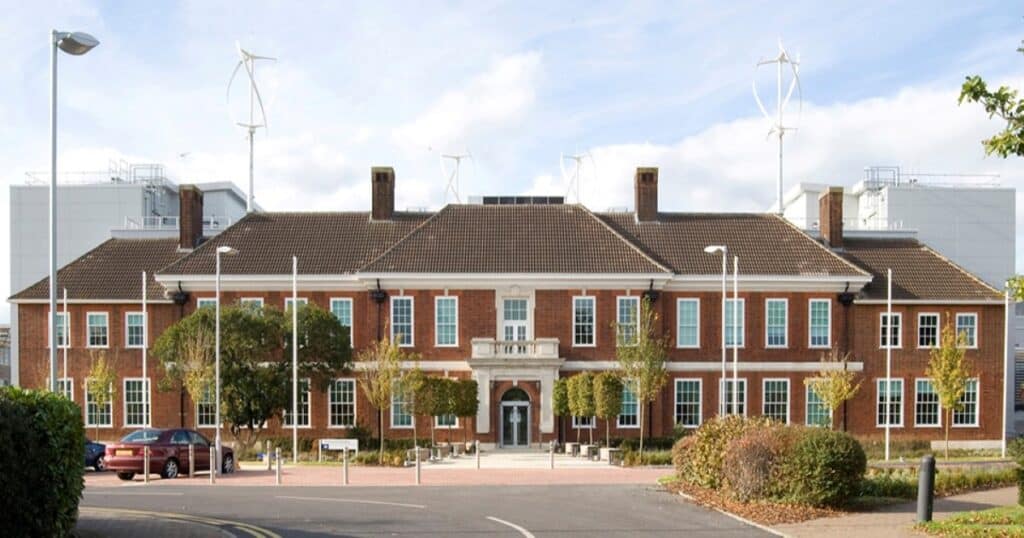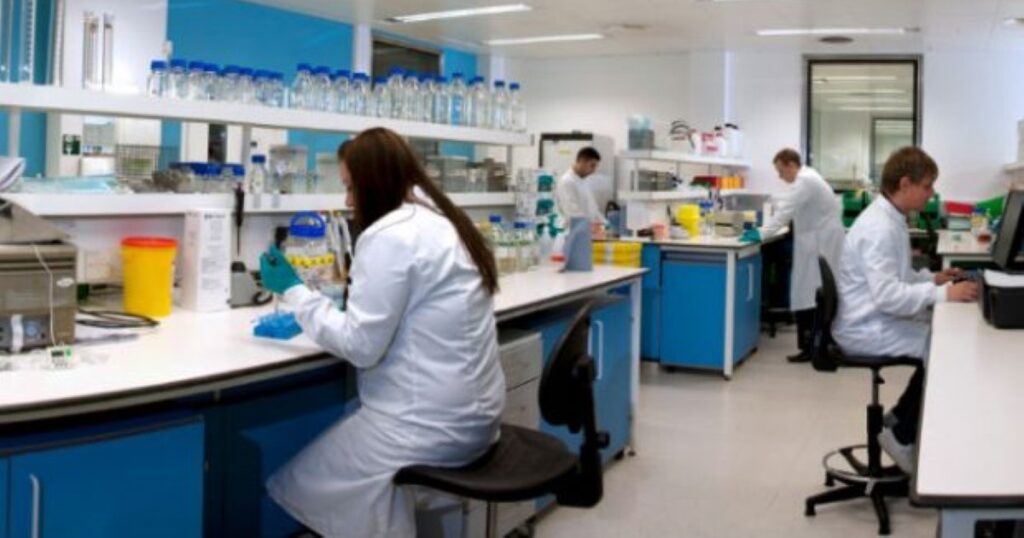A new National Biosecurity Centre will begin to take shape in a matter of months after government pledged £1 billion to the cutting-edge scientific campus in Surrey. When complete, the Animal and Plant Health Agency centre in Addlestone will serve as the UK’s foremost animal biosecurity facility.
Government made the announcement this week saying it will protect the British public and the economy from future pandemics.
Animal disease outbreaks represent a serious and increasing risk to public health, food security, and the UK economy.
The UK’s high containment laboratories for animal health are run by the Animal and Plant Health Agency (APHA) at Weybridge. They urgently need renewal to handle escalating disease risks, which is growing due to climate change.
The new facility will join a network of national centres set up by the Cabinet Office under the UK Biological Security Strategy. It will keep the public safe and is essential to responding to biological security risks.
Preparatory work at the Addlestone site is already underway. Planning consent has been secured and a contractor appointed to build the main new facilities.
The first interim labs to support critical science while we transform the site will be ready in 2027 and 2028. The main construction works start in 2027. And the full new National Biosecurity Centre will be live and operational in 2033/34.
Matt Furniss, Surrey County Council’s Cabinet Member for Highways, Transport and Economic Growth, said:
“We very much welcome this government investment into our region which strengthens Surrey’s reputation as a leading UK region for innovation and research.
“This cutting-edge facility will not only play a key role in protecting the nation’s health, it will also create jobs for residents and broader prosperity in our communities.
“As government looks to drive growth across the UK, our aim is to ensure that Surrey is a major part of that story – and we’ll continue to work with partners like the Animal and Plant Health Agency to make the most of opportunities, ensuring we meet the demands of our 110,000 businesses while ensuring no one is left behind.”
Why is a National Biosecurity Centre needed?
Approximately 60% of all known human infectious diseases are zoonotic, meaning they can be transmitted from animals to humans. And about 75% of emerging infectious diseases originate in animals. This makes the fight against these diseases about human health and security too.
Without strong and modernised biosecurity infrastructure, disease incursions could severely impact the UK’s farmers, agricultural production, devastate rural communities and disrupt key supply chains.
The export of livestock, meat and meat products, dairy and animal by-products is worth £16 billion per year to the UK economy.
The funding will now enhance the country’s detection, surveillance and control capabilities for high-risk animal diseases. These include avian influenza, foot and mouth disease and African swine fever. It will also enhance the UK’s ability to manage concurrent disease outbreaks.
Jenny Stewart, Senior Science Director at the Animal and Plant Health Agency, said:
“This funding is a vital milestone in the delivery of a world-leading facility that will protect the UK from animal disease threats for decades to come.
“Our scientists and specialists at Weybridge are at the heart of the UK’s disease surveillance and response capability and provide a global centre of expertise.
“Investment on this scale will enable them to continue their critical work in modern, fit-for-purpose facilities, supported by the very latest technologies.”
What is the Animal and Plant Health Agency?
The Animal and Plant Health Agency (APHA) has its headquarters in Weybridge. It works to safeguard animal and plant health for the benefit of people, the environment and the economy.
It is part of the Department for Environment, Food and Rural Affairs with more than 2,200 employees.
APHA’s central laboratory has been in Weybridge since 1917, when it was known as the Addlestone Institute.
It has a long history of work of national and international importance. This has contributed to Surrey being animal health being a key sector for Surrey’s economy.
In 1939 it began an urgent programme for the mass production of anthrax vaccine and antiserum. This was so the country would be able to respond to the threat of a biological warfare emergency.
More recent past achievements include eradicating swine fever in the 1960s. And characterising the first case of BSE in the 1980s. It also developed the first licensed vaccine for TB in badgers in 2009.
APHA was formed in 2014 by merging the Animal Health and Veterinary Laboratories Agency with parts of the Food and Environment Research Agency.
The network of national centres announced by government this week marks a new chapter for APHA. It will ensure the UK is better prepared for a crisis, responding more effectively to incidents and delivering a more holistic approach to biological research.
Environment Secretary Steve Reed said:
“Farmers and food producers will now be better protected from diseases, our food security strengthened, and public health better safeguarded against future pandemics. This government is getting on with delivering on our Plan for Change.
“The new National Biosecurity Centre will play an essential role in addressing the full range of biological threats we face, including from hostile nations, and will ensure that the UK retains the scientific capability, infrastructure and expertise needed to lead international efforts to identify, manage, and mitigate disease threats in the years ahead.”

